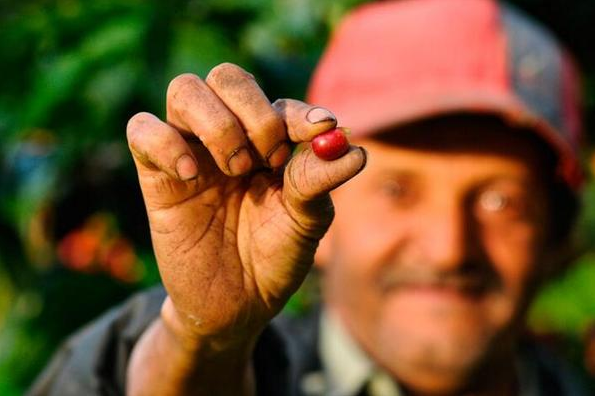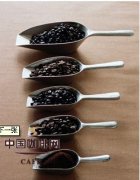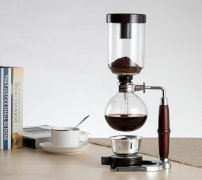Hartmann Manor, Panama Coffee beans single soy wine treatment method introduction flavor description planting area

Professional barista communication, please pay attention to coffee workshop (Weixin Official Accounts cafe_style )
Red wine processing, also known as controlled fermentation, or lactic/acetic acid fermentation
The team, led by Felipe Sardi, an American, is made up of bioscientists and ecologists who apply solar energy and other technologies to cultivation and green bean processing.
Specialized hand-picking teams are trained and strictly follow the picking requirements of fine coffee beans: immature fruit <2%, defective beans <3%, floating beans <5%.
acetic acid fermentation-aerobic fermentation
lactic acid fermentation-anaerobic fermentation
Expectations for taste:
Acetic fermentation: cleaner, livelier acids, brighter acids, citric acid
Lactic fermentation method: taste more round, cleaner than acetic acid fermentation method, higher body, malic acid/tartaric acid
Hartman Manor
Hartman's story, like his coffee, is legendary. Hartman Manor is located in Zelich, Santa Clara. The founder was Mr. Alois St. Hartmann (Luis Hartmann). He was born on June 20, 1891, in the Moravila region of Hungary, Austria, in what is now the Czech Republic; he died on May 25, 1970, aged 78.
As a young boy, he was abandoned at the start of World War I. Thanks to his mother, he survived by hiding on a ship bound for Pennsylvania. Both of his brothers died in the war after joining the army. Luis Hartmann traveled a number of countries with his friends until he arrived in Panama in 1911 and settled in Chiriqui province in 1912, mainly in the Candela region. He built the first cabin in the virgin forest.
Hartman Manor is a family business founded in 1940 by Latip Hartman (son of Louis). In 1966, Lattie married Denora Sandy of Costa Rica. They had five sons, little latitte, alan, alexander, alice and kelly. Each member of the family is responsible for the growing, harvesting and estate visits. A family estate that has grown coffee for more than 100 years is a legend in itself.
The family-owned business has a state-level cup-testing laboratory and sample baking room. Carefully cup each batch of coffee fruit. This ensures that Hartman Manor coffee quality is stable and always seeking improvement. Their scientific approach to coffee and nearly 100 years of family experience guarantee their excellent production.
A legendary estate with continental cupping laboratories and sample roasters. Yan Jin's attitude and strict standards ensured the stable quality of Hartman Manor's coffee.
This batch is red wine treated Kadura species. From the moment it is ground, it emits super rich fruit aroma, accompanied by fresh smoky wood fragrance, plus special berry sweet fragrance in the sun. Smell it and you will be drunk. After entering the mouth, accompanied by rich tropical fruit flavors, such as passion fruit, mango, orange and berry juices and peach wine carefully blended cocktail! No, it's a cocktail from nature!
Of all the coffee-producing areas on earth, very few have successfully tried out a red-wine-like treatment. After years of testing, this treatment was able to control the acidity of coffee. Coffee fermented by a process similar to red wine greatly enhances the sweetness, cleanliness and multi-layered complexity and elegance of the acidity in coffee. This fermentation greatly improves the quality and uniqueness of the coffee produced.
Until now, processing plants have been operated manually, handed down from generation to generation, such as biting and feeling the fermentation of coffee beans. This fermentation process is uncontrollable and variable.
Controlled fermentation monitors the degree of fermentation by controlling the pH. To achieve predictable results and consistent production from batch to batch.
Cardura is a single-gene variant of Bourbon, discovered in Brazil in 1937, with better productivity and disease resistance than Bourbon, and shorter trees for easy harvesting, but with the same problem of productivity fluctuations every two years as Bourbon. However, its adaptability is strong, it does not need shade trees, and it can also be vigorous under direct sunlight. It is called Sun Coffee, which can adapt to high density planting, but it must be fertilized more, increasing the cost, so the initial acceptance of coffee farmers is not high.
But prices soared in the 1970s, and farmers switched to kadura to boost yields, which was promoted by the Brazilian and Colombia authorities with great success. Farmers 'acceptance of Kadura meant a major change in planting technology. Brazil and Colombia switched to high-yield, high-density solarization, and by 1990, 14 million bags of coffee beans could be harvested on one million hectares, an increase of 60%. No wonder the high-yield, high-quality variety Kadura has become the mainstay of all producing countries.
Kadura is suitable for planting in high altitude areas from 700 meters to 1700 meters. It has strong altitude adaptability. The higher the altitude, the better the flavor and the lower the productivity. This is the fate of fine beans. Some scholars call Kadura a dense and exposed version of Bourbon, which is to the point. There is also a variant of yellow catura (Caturra Amarello) in Central and South America, but it is not as popular as yellow bourbon.
When Kadura is lightly roasted, the sour aroma is obvious, and the overall brightness is bright. If it is properly processed, the sweetness can be very good, but the alcohol content of coffee is relatively low compared with bourbon, and the cleanliness of the taste is a little lacking.
Kadura is usually a red berry, but there are rare areas where yellow kadura is grown, such as Hawaii, where yellow kadura is rarely grown.
Hartman with the hand punch. 15g powder, medium grinding (small Fuji ghost tooth knife 4 grinding), v60 filter cup, 88-89 degrees water temperature, the first injection of 30g water volume, 27 seconds of stewing, injection to 105g water volume cut off water, wait for the powder bed water volume to drop to half, then inject water slowly until 225g water volume, tail section do not, water powder ratio 1:15, extraction time 2:00
Country: Panama
Grade: SHG
Production area: Vulcan production area
Altitude: 1250-1700 Meters
Treatment: Red wine treatment
Breed: Cadura
Manor: Hartman Manor
Flavor: Smoked wood spice, berry, fruit bouquet
Panama Hartman Estate Kadura Red Wine Treatment
Factory Name: Qianjie Cafe Address: No. 10 Baoan Qianjie, Yuexiu District, Guangzhou City Contact: 020-38364473 Ingredients List: Self-baked Shelf Life: 30 Net Content: 227g Packaging: Bulk Taste: Neutral Coffee Bean Ripe Degree: Coffee Ripe Bean Sugar: Sugar-Free Origin: Panama Coffee Type: Other Roasting Degree: Moderate Roasting
Important Notice :
前街咖啡 FrontStreet Coffee has moved to new addredd:
FrontStreet Coffee Address: 315,Donghua East Road,GuangZhou
Tel:020 38364473
- Prev

Description of the Flavor of single Bean Coffee beans in Incht Manor
Exchange of professional baristas please pay attention to the coffee workshop (Wechat official account cafe_style) Pacamara flavor is full, rich, changeable, few coffee varieties not only with sour fruit, sweet feeling is still obvious, and with drupes, vanilla plants, tropical fruits, chocolate, sweet spices and other variety. Factory name: coffee workshop address: No. 10 Baoqian Street, Yuexiu District, Guangzhou contact information: 020-38
- Next

Description of hand Chong parameters and Flavor of Ilyta Garden in Panama
For the exchange of professional baristas, please follow the Panamanian Ireta made by hand in the coffee workshop (Wechat official account cafe_style). 15g powder, medium grinding (small Fuji ghost tooth cutter 4 grinding), v60 filter cup, 88-89 degrees water temperature, the first water injection 30g water, 27 seconds of steaming, injection to 105g water cut off, wait for the powder bed water to half and then water injection, slow water injection until 225g water, tail
Related
- Does Rose Summer choose Blue, Green or Red? Detailed explanation of Rose Summer Coffee plots and Classification in Panamanian Jade Manor
- What is the difference between the origin, producing area, processing plant, cooperative and manor of coffee beans?
- How fine does the espresso powder fit? how to grind the espresso?
- Sca coffee roasting degree color card coffee roasting degree 8 roasting color values what do you mean?
- The practice of lattes: how to make lattes at home
- Introduction to Indonesian Fine Coffee beans-- Java Coffee producing area of Indonesian Arabica Coffee
- How much will the flavor of light and medium roasted rose summer be expressed? What baking level is rose summer suitable for?
- Introduction to the characteristics of washing, sun-drying or wet-planing coffee commonly used in Mantenin, Indonesia
- Price characteristics of Arabica Coffee Bean Starbucks introduction to Manning Coffee Bean Taste producing area Variety Manor
- What is the authentic Yega flavor? What are the flavor characteristics of the really excellent Yejasuffi coffee beans?

